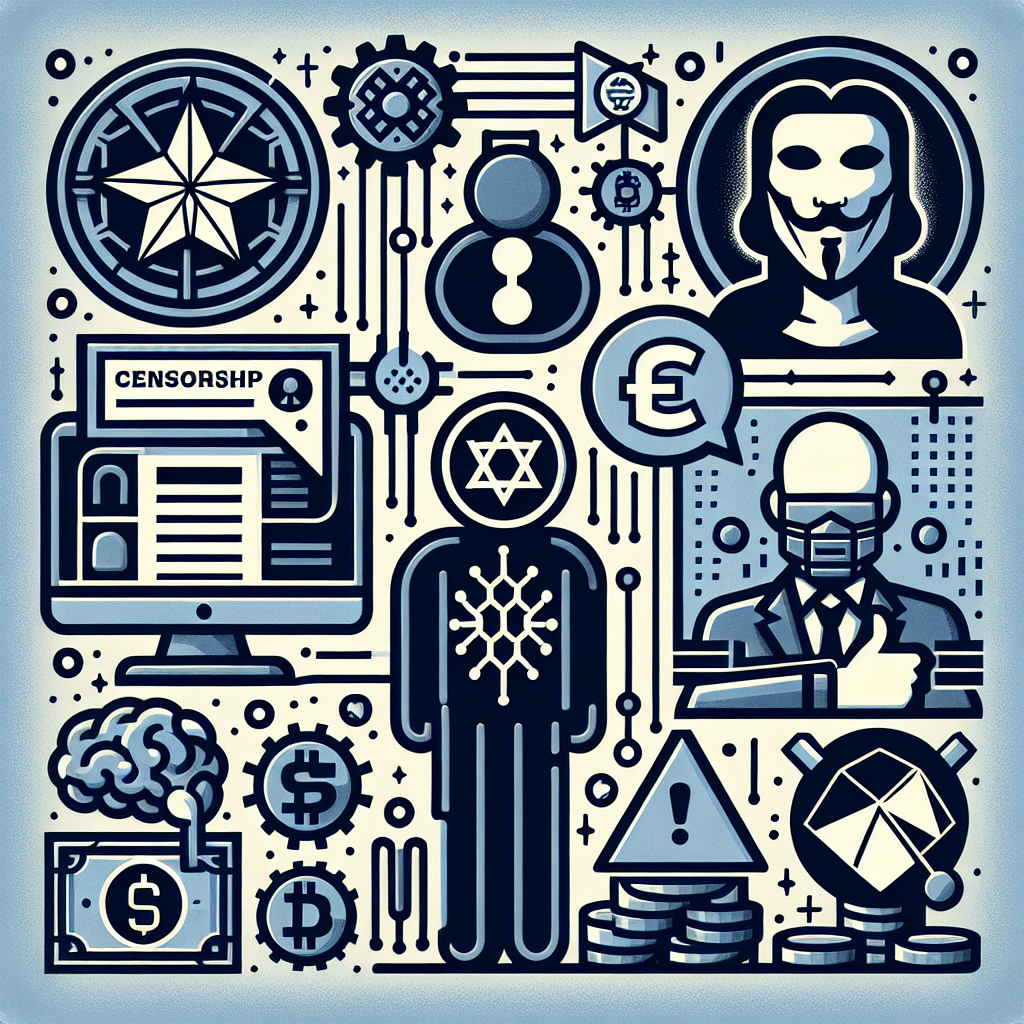Altcoins
Cardano’s Charles Hoskinson Highlights Concerns Over AI Censorship and Its Impact on Society

Cardano (ADA) founder Charles Hoskinson recently vocalized his growing concerns regarding the trend of Artificial Intelligence (AI) censorship and its implications on the utility and accessibility of technology. With the digital age evolving at a rapid pace, the intersection of AI and censorship has become a focal point for debate among technologists, policymakers, and the public at large.
Hoskinson’s remarks on the social media platform X highlighted a critical issue facing the tech community today: the notion of “alignment” training in AI. This process, according to Hoskinson, essentially filters and restricts access to certain types of knowledge based on decisions made by a select group of individuals who operate beyond public accountability or electoral influence. The Cardano founder’s concern centers around the idea that this form of censorship not only diminishes the utility of AI but also raises significant ethical and societal questions about the control of information and knowledge in the digital era.
To illustrate his point, Hoskinson shared examples involving two prominent AI models when prompted with a question about building a Farnsworth fusor—a device known for its complexity and potential danger if mishandled. ChatGPT 4.1, a leading AI model, initially acknowledged the risks associated with creating such a device but proceeded to list the necessary components for its construction. Similarly, Anthropic’s Claude 3.6 Sonnet provided general information about the fusor but stopped short of detailing its assembly. These responses underscore the delicate balance AI models must maintain between providing information and ensuring safety, further complicating the discourse on AI censorship.
The broader implications of AI censorship are not lost on the tech community. Earlier this month, concerns were expressed by a collective of current and former employees from notable AI organizations, including OpenAI, Google DeepMind, and Anthropic. An open letter from these individuals highlighted the myriad risks posed by the rapid advancement and deployment of AI technologies, ranging from the dissemination of misinformation to the existential threat of losing control over autonomous AI systems.
Despite these concerns, the development and release of new AI tools continue unabated. Robinhood, for instance, recently introduced Harmonic, a new protocol from its commercial AI research lab focusing on Mathematical Superintelligence (MSI). This ongoing innovation in the AI space demonstrates the industry’s commitment to pushing the boundaries of technology, even as it grapples with the ethical, societal, and safety challenges posed by such advancements.
The dialogue on AI censorship, as sparked by Charles Hoskinson, is a reminder of the complex interplay between technological innovation, ethical considerations, and societal impact. As AI continues to permeate every facet of modern life, the decisions made today by technologists, policymakers, and the public will shape the future of this transformative technology and its role in society. The discourse surrounding AI censorship is not merely about the control of information but also about who holds the power to decide what knowledge is accessible and to whom. As the tech community and society at large navigate these turbulent waters, the balance between innovation, safety, and freedom of information will remain a critical issue for the foreseeable future.
-

 Press Releases2 years ago
Press Releases2 years agoGaming Technologies of the New Time!
-

 Altcoins12 months ago
Altcoins12 months agoBitcoin Declines Below $80K: deVere CEO Nigel Green Remains Bullish on Long-Term Outlook Following Strategic U.S. Bitcoin Reserve Announcement
-

 Altcoins11 months ago
Altcoins11 months agoCalls for Enhanced Discussion on Bitcoin as Brazil’s Reserve Asset: A Move Towards ‘Internet’s Gold’
-

 Bitcoin1 year ago
Bitcoin1 year agoBitcoin Surges Past $64K as SEI and POPCAT Lead Daily Crypto Gains on September 25
-

 Press Releases2 years ago
Press Releases2 years agoEvo Exchange: Redefining the Decentralized Exchange Landscape
-

 Bitcoin7 months ago
Bitcoin7 months agoGrayscale Investments Submits Draft Registration for IPO, Aiming for Public Trading in U.S.
-

 Press Releases1 year ago
Press Releases1 year agoCODE, a Newly Born Project Brings Decentralization Back to the Main Menu
-

 Bitcoin7 months ago
Bitcoin7 months agoPeter Schiff Critiques New Crypto Legislation, Claims Bitcoin (BTC) Gains are Short-Lived




